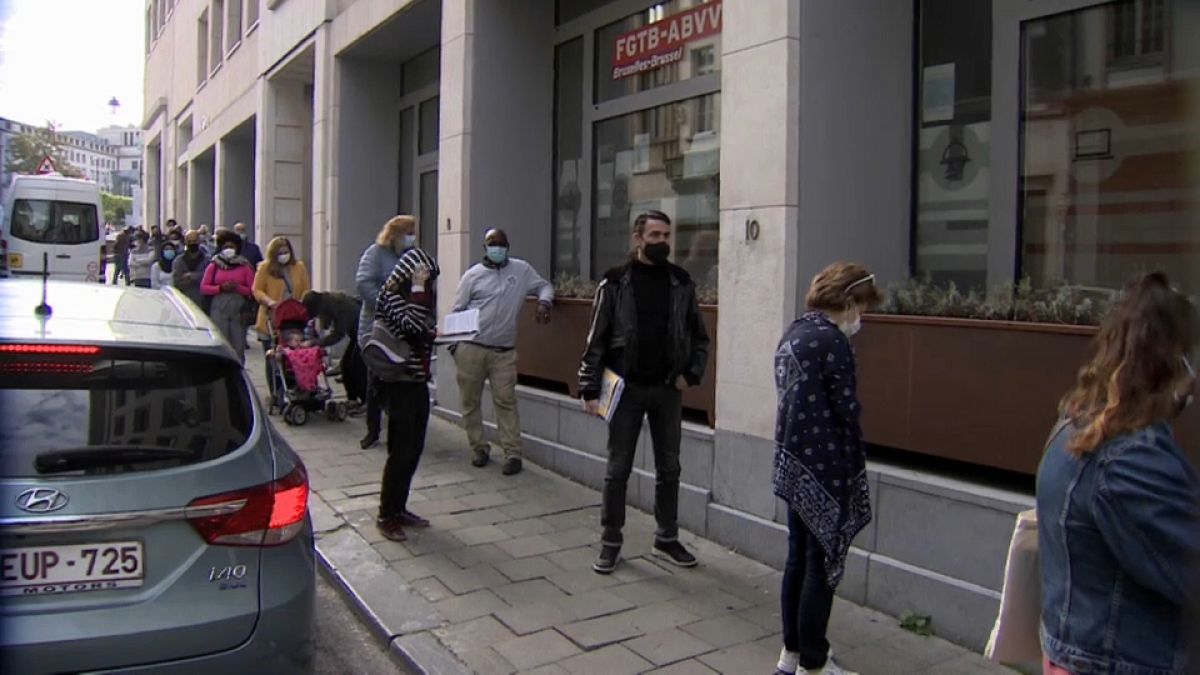The EU announced a scheme earlier this year aimed at assisting furloughed workers during the pandemic and now money is beginning to be allocated to member states in need.
Since the coronavirus pandemic started, the number of people receiving state aid for temporary and long-term unemployment benefits has skyrocketed.
For countries like Belgium, money to support temporary social measures is in short supply, which is why the European Union has introduced a coronavirus unemployment programme, known as SURE.
The idea is to help finance short-term work schemes in member states and is part of the EU's strategy to protect citizens from the socio-economic consequences of the pandemic.
To fund this, the EU has borrowed €100bn from the financial markets and last week it presented proposals to grant €81.4 billion to 15 EU countries under the scheme.
One Belgian jobseeker, Anna Garcia, who will likely benefit from the programme, said that the situation for her during this period is “very hard”. She is just one of many people who have lost their jobs.
According to trade unions, the official unemployment figures hide the true scale of the problem. Officially 15 million people have lost their jobs, while 45 million are on temporary job support. This means that without state and EU support, the unemployment figures could reach 60 million.
But Luca Visentini, the European Trade Union Confederation’s secretary-general, said that the measures rolled out by the EU are a very positive result for the continent: “Finally the European Commission was able to pay the money, to at least some member states because they submitted their applications to receive money from the SURE scheme. €81bn as we know has been mobilised for far.
“There are still some €19bn that could be used maybe for the prolongation of the measures. Sixteen countries are going to benefit from this money. We assess this as a very positive result of the emergency measures.”
Italy and Spain, whose economies were hit hardest by the pandemic, are set to receive the largest payouts, €27.4bn and €21.3bn respectively, followed by Poland (€11.2bn) and Romania (€4bn).
Visentini added: “It will take a very long time for the recovery fund to enter into force and to produce an effect in terms of employment recovery, so I am not sure that the money that has been allocated to far… will be sufficient to cover next year.”
Nevertheless, with a second wave on the horizon, millions of jobs within the EU remain at risk, which means that the bloc and its governments face some tough choices ahead.
